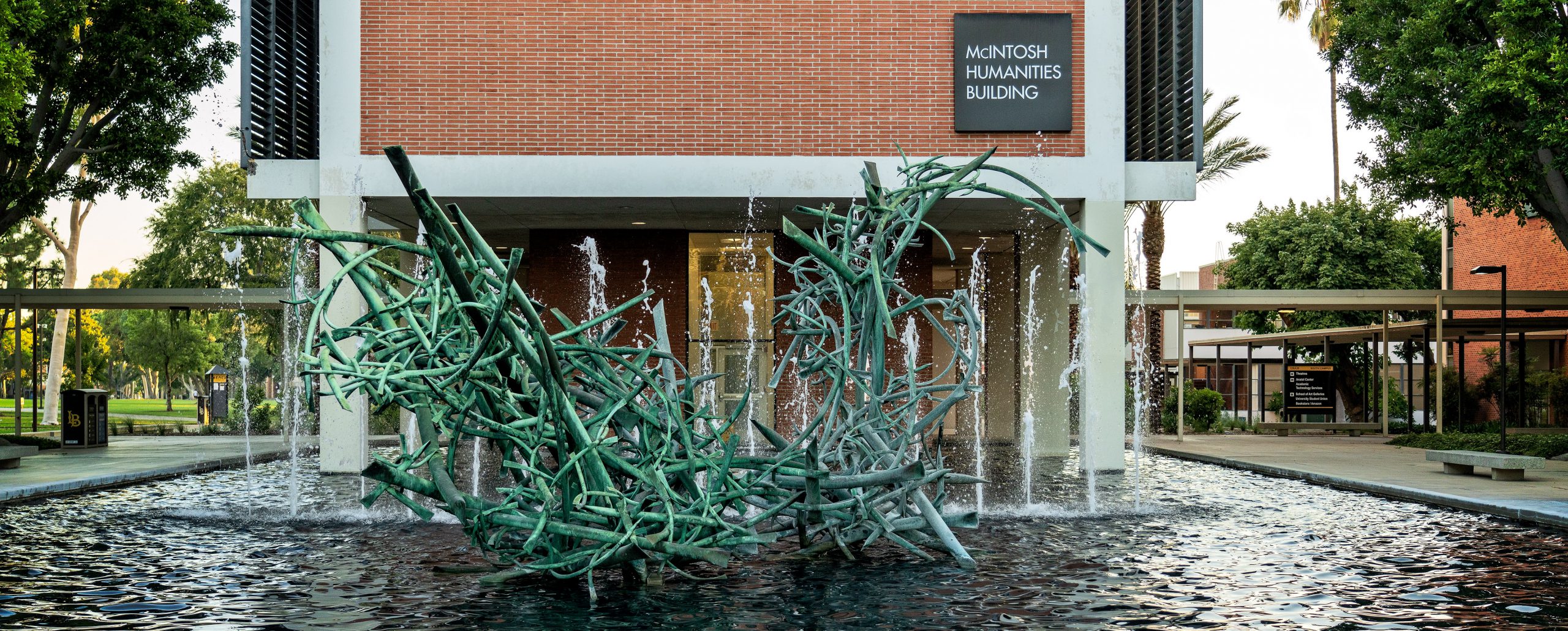Graduate Research Fellow AY 17-18

Graduate Research Fellow – Eugenia Bey
Biography:
Eugenia Bey, a Master’s candidate in the Department of Geography, is excited to have been selected to represent the College of Liberal Arts as the 2017–2018 Graduate Research Fellow. Eugenia has also been selected as a 2017–2018 Switzer Environmental Fellow. Eugenia is passionate about climate adaptation and resilience planning using ecosystem-based solutions such as green infrastructure. Her work focuses on communicating climate-related risks and hazards to educate and empower vulnerable populations, and finding ecologically and culturally appropriate community-based solutions for the challenges that lie ahead. Prior to her studies at CSULB, Eugenia engaged communities in Salt Lake City, UT in renewable energy initiatives by helping to decrease residential dependency on fossil fuels through her work as an Outreach Associate at 3Degrees Inc. Before this, she worked as the Sustainability Ambassador and Materials Research Associate leading the design of a large-scale green infrastructure project hosted by the University of Utah College of Architecture and Planning for the Marriott Library.
Eugenia graduated with honors from the University of Utah with a B. S. in Environmental and Sustainability Studies, and B. S. in Urban Ecology, where she was dedicated to enriching the lives of her peers on campus by directing and participating in multiple student groups, including the Sustainability Leadership Committee and the Student Collective of Allied Planners and Ecologists. She has volunteered with a variety of urban agriculture and environmental justice nonprofit organizations. Her most recent work focuses on helping to establish Long Beach, CA as one of the California Environmental Justice Alliance’s ‘Green Zone’ cities. After the culmination of her graduate studies, Eugenia looks forward to directing a non-profit organization that focuses on strategic conservation planning and community resilience building through green infrastructure education and implementation.
Research Description:
Eugenia’s thesis research project, entitled Cultivating Social-Ecological Resilience and Climate Change Adaptation through Green Infrastructure in Long Beach CA, focuses on addressing the anticipated local impacts of climate change through ecosystem-based adaptation and community engagement. Densely populated coastal cities, such as Long Beach, will face increased risks due to sea level rise, larger storm surges, prolonged drought, deteriorating air quality, and an increased number of extreme heat days. Furthermore, Long Beach is home to a wide diversity of socioeconomic groups, and the impacts of climate change are expected to be unevenly distributed, with a disproportionate burden of risks and hazards affecting already disenfranchised populations, and residents and businesses residing in low-lying coastal areas of the city.
Eugenia’s research takes a community-based, solutions-oriented approach to addressing these projected impacts with the intention of enhancing the social-ecological resilience of our communities. In particular, her thesis research examines the ecosystem-based adaptation strategies that green infrastructure offers. Green infrastructure is the development and strategic siting of urban green spaces such as parks, trees, and greenways in conjunction with built systems such as green roofs, permeable pavement, and rain gardens, that together can provide multiple social and ecological benefits including improved human health, stormwater and flooding abatement, air pollution reduction, and reduced urban heat island effect. This research aims to address critical questions at the forefront of environmental geography, land-use planning, and climate adaptation. Eugenia takes an interdisciplinary approach utilizing her background in urban ecology, environmental sustainability, and architectural design to address the local challenges that climate change presents to Long Beach specifically, as little research has been conducted to examine the potential contribution that green infrastructure can offer our city. Through this research, she aims to inform a gap in scholarly knowledge, while simultaneously applying problem-solving skills to tangible, real-world issues. Sensitive to capturing uneven social power relations, cultural understandings of space, and ecological function, Eugenia’s research proposes a mixed methods approach that combines qualitative and quantitative social science methods with geospatial analysis. Eugenia will collaborate with local community organizers and staff from City of Long Beach Department of Planning, to collect and analyze multiple types of data and build relationships with diverse community stakeholders, ensuring that her research is rigorous and her findings are can be applied to assist local communities build social-ecological system resilience.
Eugenia’s research will be conducted under the supervision and guidance of Dr. Lily House-Peters, Assistant Professor of Sustainability Science in the Department of Geography, whose expertise includes social-ecological system resilience, sustainable water resource management, and the human dimensions of environmental change. Over the course of the next year, Dr. House-Peters and Eugenia will collaborate to write peer-reviewed articles, and a ‘white paper’ to offer to the City of Long Beach staff and to leaders of local community organizations to better inform the decision-making process of creating a healthier, more climate-resilient Long Beach.
